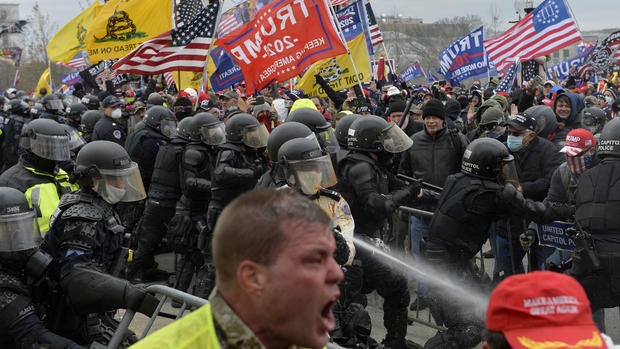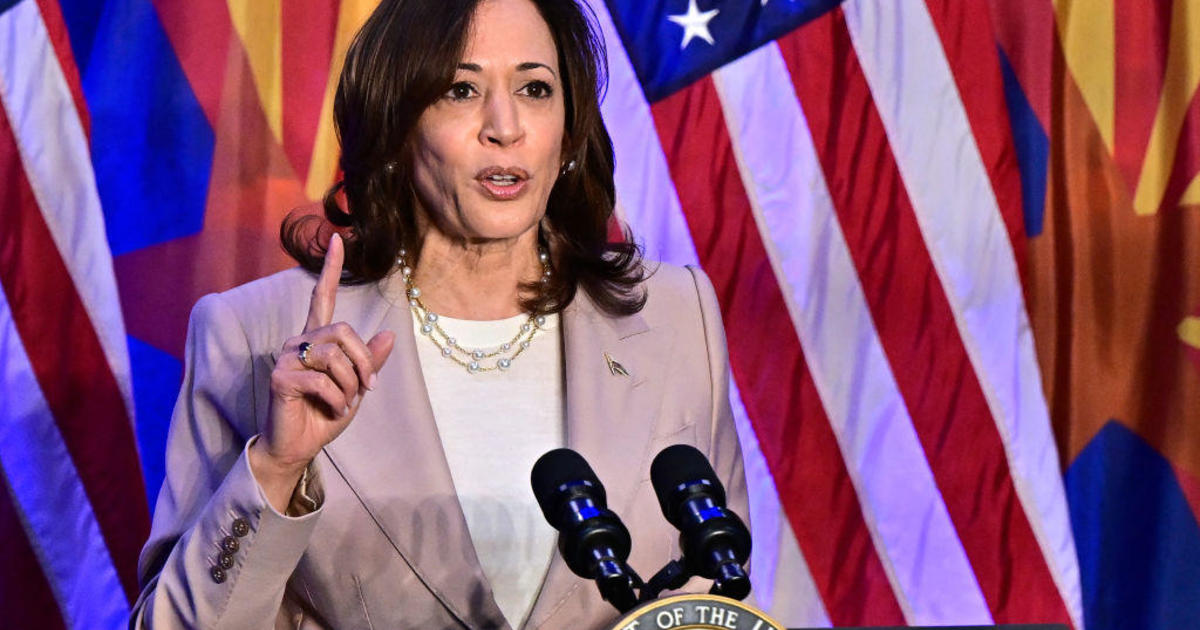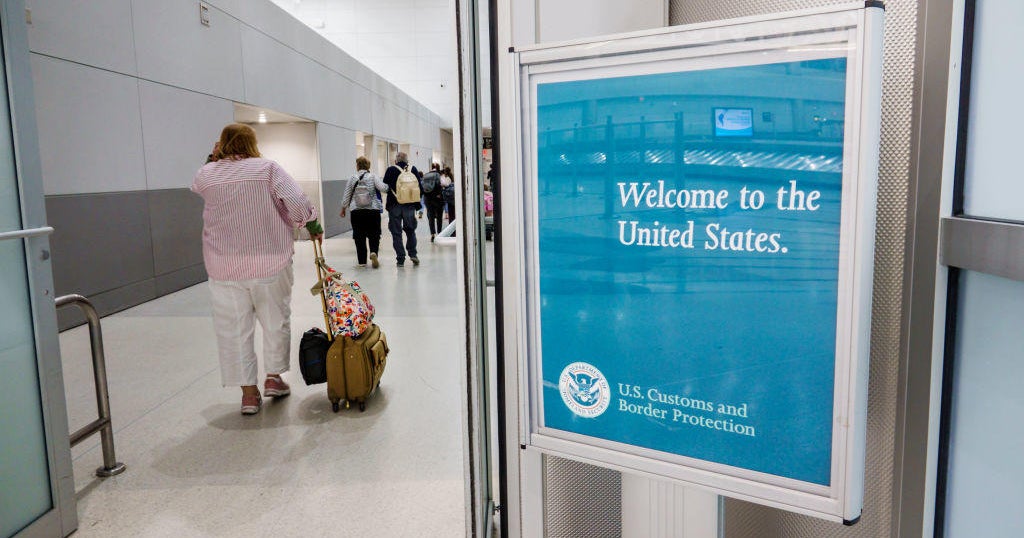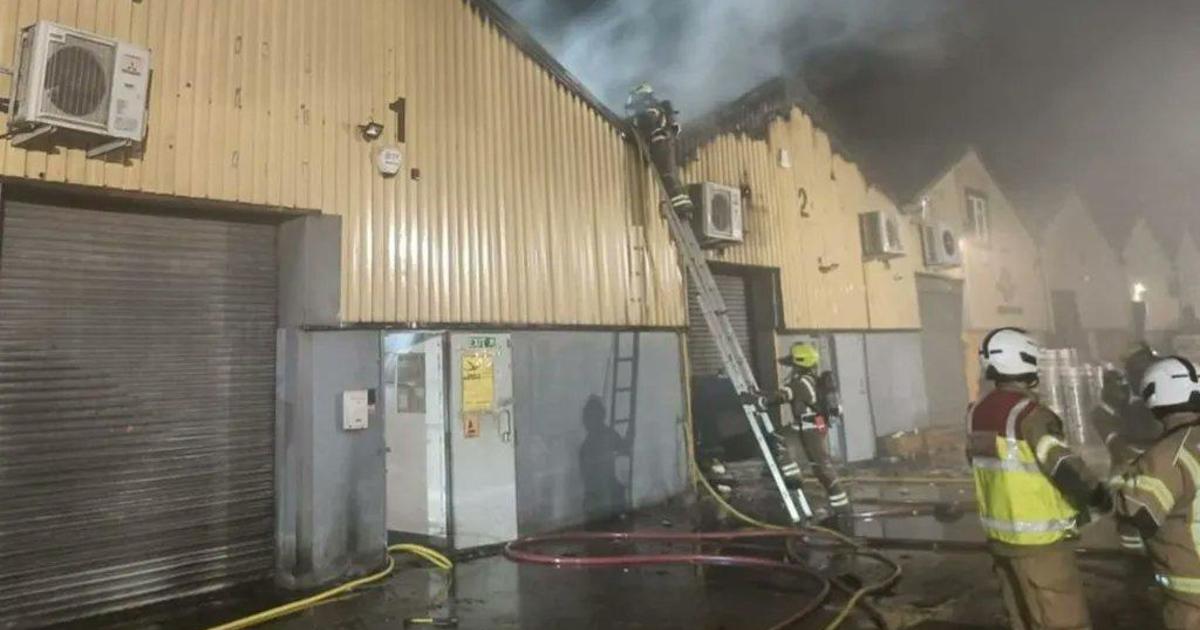Capitol Police chief apologizes for "failed" response to January 6 riots
Acting U.S. Capitol Police Chief Yogananda Pittman told lawmakers today there was a failure to adequately prepare for and execute a response to the assault on the U.S. Capitol on January 6 and offered "sincerest apologies" on behalf of her department for what unfolded that day.
"The Department failed to meet its own high standards as well as yours," Pittman wrote in a statement shared by the House Appropriations Committee.
"Let me be clear: the Department should have been more prepared for this attack," her statement continued. "By January 4th, the Department knew that the January 6th event would not be like any of the previous protests held in 2020. We knew that militia groups and white supremacists organizations would be attending. We also knew that some of these participants were intending to bring firearms and other weapons to the event. We knew that there was a strong potential for violence and that Congress was the target."
Despite the early warning signs, Pittman writes, the Capitol Police Board refused a request from former USCP Chief Steven Sund to declare a state of emergency and authorize a request for National Guard support. The board consists of the Sergeant at Arms of the U.S. House of Representatives, the Sergeant at Arms and Doorkeeper of the U.S. Senate, and the Architect of the Capitol.
Both the House and Senate Sergeants at Arms resigned in the wake of the attack, as did Sund. Acting House Sergeant at Arms Timothy Blodgett, in a separate statement, did not address the Capitol Police Board's decision to deny Sund's request.
Instead, the Board directed Sund to reach out to D.C. National Guard to determine how many could be sent to the Capitol on short notice. Their commanding general, Maj. Gen. William Walker, told the Washington Post Tuesday that the Pentagon restricted his authority to deploy his troops without higher-level sign off, which cost valuable time as rioters descended on the Capitol.
In separate remarks to the committee, former Army Secretary Ryan McCarthy said that acting Defense Secretary Chris Miller approved a request from D.C. Mayor Muriel Bowser to deploy 340 National Guard troops to assist with traffic and at certain Metro station. But, he added, Miller said he would need to approve any change of uniform, interaction with protesters, or use of riot gear.
McCarthy also said that the Defense Department did not receive any additional requests for aid even after asking other agencies as late as January 4, and said federal and local agencies had given "no indication…that the 6th would be any different in size, composition or threat levels than what we witnessed during the November 12th and November 14th demonstrations."
"I do not believe there was any preparations that would have allowed for an open campus in which lawful protestors could exercise their first amendment right to free speech and at the same time prevented the attack on Capital grounds that day," Pittman concludes.
Although the USCP increased their staffing before the attacks to a total of 1,200 officers working at the site, Pittman said they were "no match for the tens of thousands of insurrectionists," some of whom were armed. Additionally, the department had to deploy officers to investigate a pipe bomb that was discovered at Republican National Committee headquarters, which required an evacuation of two House office buildings and the surrounding neighborhoods, before discovering another vehicle with explosive chemicals and a firearm in the area and a second pipe bomb at Democratic National Committee headquarters.
Pittman says her officers lacked "less lethal options" like impact weapons to supplement their pepper spray and batons, and had trouble communicating over radio with the noise of the ongoing attack. She additionally acknowledges that the Capitol lockdown procedures she ordered "may not have been consistently followed," a likely reference to videos from the scene that showed some officers allowing rioters to enter the building.
In the wake of the attack, Pittman told members of Congress, the department has increased its intelligence sharing and implemented daily briefings for USCP officials from the department's Intelligence director. Officers are receiving additional training on civil disturbance procedures.
In a separate statement, Blodgett blamed a failure of preparation.
"Whether it was insufficient or conflicting intelligence, lacking ability to translate that intelligence into action, insufficient preparation or an inadequate ability to mobilize partner agencies for immediate assistance, a series of events, once thought unfathomable, unfolded allowing our most sacred halls to be breached," he said.
He praised the evacuation procedures inside the Capitol that day and commended his staff and USCP officers for getting all members and staff in the Capitol home safely that day. But he also said it would be necessary to harden security around the U.S. Capitol campus and improve communications with Hill staff.
Blodgett also called for implementation of a real-time system to for members to notify the sergeant at arms if they or their staff is in danger.
After the briefing, Ohio Democratic Congressman Tim Ryan, who chairs the House Appropriations subcommittee overseeing Capitol Police, said he was "terribly disappointed" in the USCP response to the riots.
"The real question is, you know, why was that intelligence not acted upon. So now we know they had it, we know they apologize, but we want to know why it wasn't acted upon."
He also said he wants to bring in the former House Sergeant at Arms Paul Irving and Sund, the former Capitol Police chief, to testify before the committee about the response and ask why the Capitol Police Board denied Sund's request for a state of emergency and more National Guard support.
Zak Hudak and David Martin contributed to this story.




